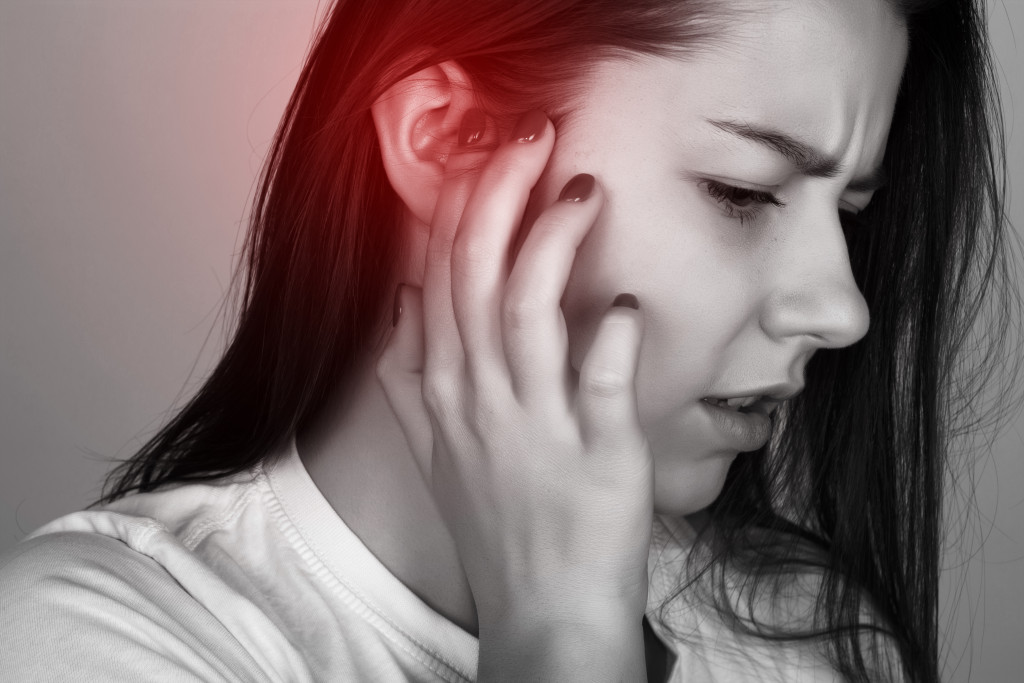Imagine your child gaily exploring the woods or sleeping soundly in her bed only to come running to you because something is wriggling inside her ears. Then, you realize, to your horror, that possibly a bug has found its way there.
What do you do? Should you get it yourself or visit the doctor? Can the bug let itself out? Are the beliefs that they can lay eggs or, worse, crawl toward the brain true?
Learn how to deal with bugs in the ear in this article.
Why Are There Bugs in the Ear?
Before we get into the nitty-gritty of getting rid of the foreign object, let’s know why they end up in the ears in the first place.
Some animals indeed take pleasure in eating dead skin cells or tissues of the living like humans. Many parasites, such as worms, can also feed on our nutrients or travel via the bloodstream to other parts of the body, such as the brain.
Cockroaches might want to enter the ears because they like the smell. However, most insects stay away from the ears because they don’t want the scent of the earwax.
Instead, a lot crawl into the ears by accident. Take, for example, a winged insect that happens to get into the “dark tunnel” of the auditory canal. Then there’s that tiny creature that just got curious while exploring its environment in the dead of night. Boom! It entered the ears.
The good news is that these insects cannot get into the other ear and other organs, particularly the brain, regardless of how movies and TV shows depict this myth. This is because of how the ears are designed.
The ears are composed of three parts: outer, middle, and inner. The outer ear includes the auditory canal, which connects it to the middle, where you can find the eardrum, small bones called ossicles, and the Eustachian tube, which helps maintain balance. Meanwhile, the inner ear has the cochlea, which contains the bundle of nerve fibers that communicate with the brain.
When insects crawl into the ears, they usually pass through the auditory canal. The problem is, they are likely to get stuck there.
Worse, even though most of the nerves are in the inner ears, many nerves are still present in the organ, including in the auditory canal. Moreover, the ears are sensitive to any sound.
Children can easily get frightened hearing buzzing sounds inside their ears, or they may feel the insect moving about as it tries to get out. In sheer panic, parents end up aggravating things by trying to get rid of it by themselves, which only pushes the insect farther into the ear canal and even into the middle ear.
Get Professional Help

First, although it is difficult to do, don’t be scared. Again, the insect won’t get into the brain. Second, consider some first-aid tips. The Mayo Clinic suggests using a tweezer if you can still spot the creature inside the ear. You can also pour some warm oil to kill the bug effectively.
These ideas, though, come with caveats. One wrong move can worsen the situation. The best way to get rid of bugs in the ears is by getting professional help. An ear specialist can perform ear microsuction, which is the same tool used for removing hardened earwax.
The process doesn’t involve any flushing or irrigation of the ear canal, so the chances of trapping water inside are zero. It is also safe for those with perforated eardrums, which can happen if you try to get rid of the bug by pushing the cotton swab deeper into the ears or if the insect ends up scratching the eardrum.
What Happens if You Don’t Get Rid of the Bugs?
Some insects can live in the ears for days and even lay eggs, which is horrible to imagine. However, they will still die, along with their eggs if they have some because they don’t have access to their much-needed resources.
You might also find it interesting to learn that a lot have dead animals in their ear canal and do not know it. Often, though, dead bugs in the ear cause complications, such as inflammation or infection.
An infection can cause various symptoms that include bloody or gooey smelly discharge from the ears, fever, and loss of balance. When left untreated, it will eventually lead to partial, temporary, or, worse, permanent hearing loss.
Although you cannot stop insects from entering the ears, you can prevent the situation from worsening. Get help as soon as you can.


















